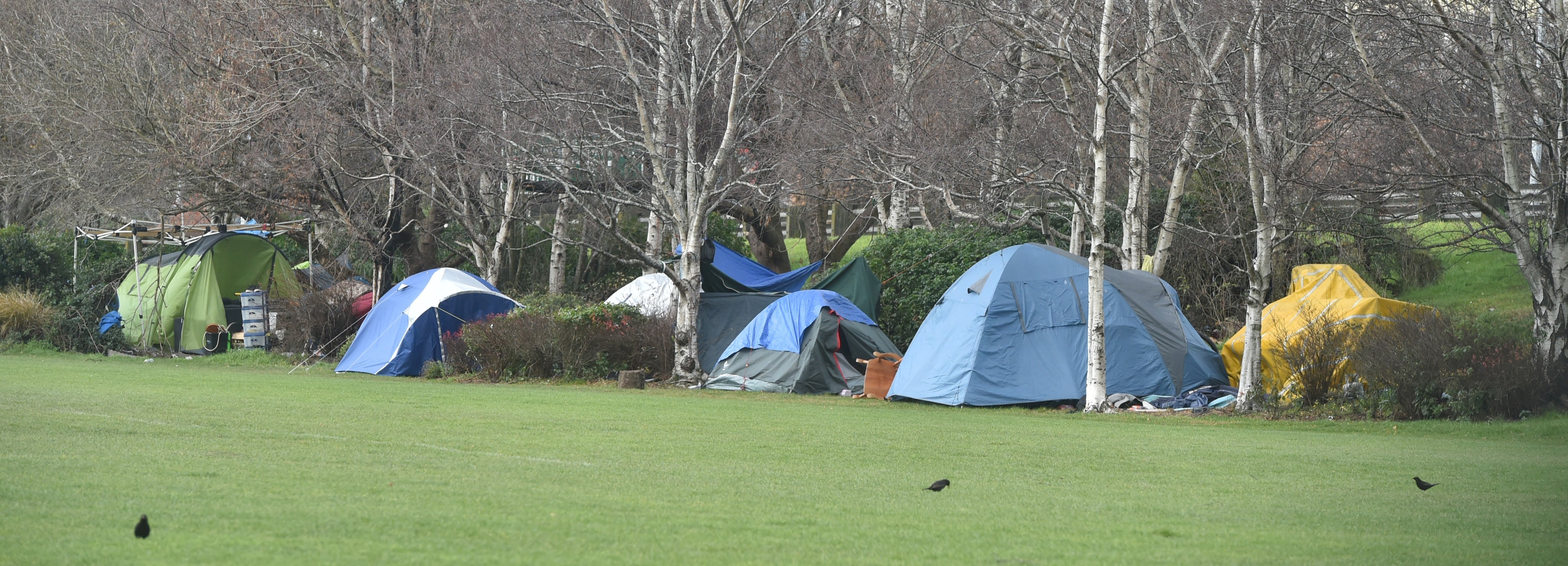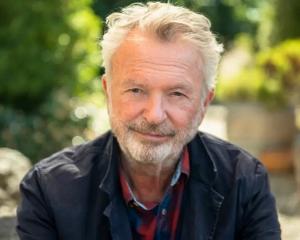
The sight of people sleeping rough at the Oval may give rise to concern or anxiety within those of us who pass by in the course of our very busy lives and schedules.
We may even feel anger at such discomfort and if this is the case, perhaps we need to dig deep to consider why.
Why don’t we know that there are other sites throughout the city where people have slept outdoors long before the Oval’s tent encampment existed?
In 1991, Ruth Richardson’s Mother of all Budgets bombed our welfare system, dropping from a great height long-lasting devastation and despair on the individuals and whanau who relied on such manaakitaka.
Since 1972, the Human Nutrition department at the university has conducted a food cost survey to estimate the minimum amount of money needed to be spent on a week-to-week basis.
Research is based on a basket of food designed to meet dietary needs of men, women, adolescents and children as well as to estimate the cost to feed a reference household of four.
Ahead of the 1991 Budget, Treasury asked Human Nutrition to prepare three scenarios for such a household — "well-off," "average" and "below-average." The third of these was reduced by 25% and this figure guided the Fourth National Government in its slashing of benefit levels.
Ruthanasia deliberately put people into poverty to incentivise them to find work — but given that jobs were few and far between, all this did was cause generations of misery in our communities and deprivation for hundreds of thousands of New Zealand’s children.
Ever since 1991, successive governments whether led by National or Labour have, to a greater or lesser extent, supported this policy position. Politicians get away with such decisions because we, the people, let them. In 1991, the government also brought in the Employment Contracts Act abolishing all forms of compulsory unionism.
While there were mass protest marches throughout the motu, over the decades we have collectively been ground down to do very little if anything about children or our neighbours not having enough food to eat, or having a warm, dry home to live in. Instead, we blame them, turn away or bellow loudly should proposals to raise taxes, even on the wealthiest few be aired.
Raising rates for local councils to support social wellbeing is considered political suicide. And, while people can express all the concern they like about our whānau experiencing homelessness, however genuine that might be, they don’t want to pay for the investment that would make significant changes.
As if generations of trauma and decades of avoidable poverty can be wished away by magic. Because let’s not forget, children, young people and their whanau are whom we are talking about.
They’re not an inconvenience to be managed, as Dougal McGowan has suggested. And frankly, they’re not a "problem" to be solved, as we heard from former mayor Hawkins.
There but for the grace of God go I. Everyone deserves to live with dignity and to be treated with empathy and if we are not focused on that for all our most vulnerable, there’s something very wrong with us.
Being unhoused is not simple and straight-forward. Vulnerable whānauka are often trying to cope with the effects of addiction, mental ill health and the ongoing aftershocks of colonisation.
We didn’t get here overnight, and ending homelessness won’t happen overnight either. Simple solutions are attractive, but as an editorial in this newspaper said a while back — if there were simple solutions, we would have done them by now.
What we need is to build more houses that people can afford to live in and give community the tools to better to care for one another.
In the meantime, we see great patches of dirt on Carroll St and Albertson Ave in Port Chalmers, both on the list of projects abandoned by Kāinga Ora.
The previous city council put $20 million in the budget to build more affordable rentals, but this one quietly ended that programme this year. The community sector doesn’t have the capacity to build at all, let alone at scale, because the government’s financial incentives that helped make that possible have now all but disappeared in the South Island.
Conservative local politicians, and candidates are running on campaigns of austerity.
They are boosted by the rhetoric in Wellington that says councils need to support the coalition’s priorities or prepare to face the consequences.
Where once we saw local leaders prepared to fight the Beehive when it made decisions they thought harmful, now all we hear are crickets.
The previous council also approved its Housing Action Plan, which includes a commitment to focus on the areas of greatest need, and the pointiest end of the stick are those experiencing homelessness.
This council has picked up on that by adopting a "sinking lid" approach to homelessness, through a more co-ordinated approach among the various government agencies and community sector players.
More permanent shelter was found for most of The Oval’s campers last year not as a result of fires or violence, but as a result of months of work by this network. The work may not be very visible, or have political champions, or get media coverage.
But it’s effective, and more important than all of those things put together. Because you can’t take shelter under a front-page headline.
Council staff are doing the best they can with the meagre resources they have and deserve better than to be thrown under the bus by community leaders and wannabe politicians.
Anybody want to guess how many staff council have allocated to this important work? One.
So yes, by all means, be angry that unhoused whanau live among us and we, for all our sophisticated technological advances, can’t seem to make much progress here.
But channel that anger into demanding better from our representatives, to spend the money that needs to be spent, and do the work that we know works.
And be sceptical of anyone who tells it can be done faster, easier and cheaper.
■Marie Laufiso is a Dunedin city councillor.









